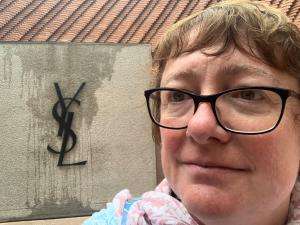We need ‘containing’ therapeutic homes

Published by Professional Social Work magazine - 27 February, 2020
Anyone working with children and young people will be aware of the perilous situation of the care sector. Finding suitable placements for some of the most vulnerable teenagers has never been harder.
Judges have criticised the lack of secure and CAMHS beds. The Children’s Commissioner has warned about children being placed in unregulated placements. And the Local Government Association has raised concern over the financial state of the majority of privately-run children's homes and foster care providers.
The situation leaves social workers and managers few options and resorting to emergency measures. I’ve heard tales of young people ending up being supported in hotel suites, or caravans or sleeping in A&E departments for days while they wait for a CAMHS bed to become available.
The problem here has many layers. I’ll start with the law and regulations. Registered children’s homes are told they must not ‘deprive a child of their liberty’. With the threshold for this now so low (‘under continuous supervision, and control, and not free to leave’) many homes are wary about taking on more children with more complex needs whose care might fall foul of this threshold.
The other issue is access to CAMHS units. Often called ‘tier 4’, these don’t work on an emergency basis. They like admissions to be planned, so that their resources can be targeted at those who are most likely to benefit.
I have some sympathy with this and I’m not convinced CAMHS beds are always the answer. But as an emergency duty team manager I can tell you most young people and their families do present in crisis and planning admissions ahead is often impossible.
Many of these young people may not be developing classic mental illnesses. But they’ve often experienced trauma and express feelings in ways that fit the definition of a ‘mental disorder’ (be that a ‘conduct disorder’, or ‘behavioural disorders’ or ‘autistic spectrum disorders’). Even if a CAMHS unit isn’t the right option, something is needed.
Another issue is the lack of therapeutic input for these young people earlier, either from the council or the NHS. These organisations do what they can with the resources they have, but children often don’t get the input they need in a timely way, storing up problems for later down the line.
And then there is what I’d call the need for some young people to have access to ‘therapeutic secure care’. I don’t mean a CAMHS unit with a predominantly medical approach, or the containment/management of behaviour approach (with some therapy) generally found in secure children’s homes.
I mean well run, well resourced therapeutic care with clear boundaries. Somewhere that understands and works with trauma and the impacts of trauma. Where young people know they will be prevented from leaving and have access to independent appeal processes.
So here is my solution. Let’s invest in good quality residential care for young people, with social work qualified staff always on shift, and better learning and development processes in place for care staff. And let’s invest in local authority run children’s homes again. These can act as centres of excellence and resources for private and independent sector services, sharing training resources and developing staff. That would help keep children local, rather than risk them becoming estranged from their friends and families, and more at risk of exploitation.
Not all councils still have in-house care, but where they do I’ve generally been impressed by the quality and experience of staff involved. Often these represent better quality than what’s offered (at great cost) in the private sector.
I would also revise guardianship under the Mental Health Act to provide a legal framework for those young people in the community who do need therapeutic care in a setting that amounts to a deprivation of their liberty, or need the authority to return them to their placements if they leave.
Such a move would resolve the current challenges faced by councils needing to go to the High Court to authorise placements that amount to a deprivation of liberty. It would also include appeal routes and the authority to bring people back to the places that they are expected to live in.
This isn’t a quick or cheap solution – but I know that if we can intervene early and stop young people who experience trauma coming into the mental health system, we will improve their life chances and that of their own children in the future.
This article is published by Professional Social work magazine which provides a platform for a range of perspectives across the social work sector. It does not necessarily reflect the views of the British Association of Social Workers.
